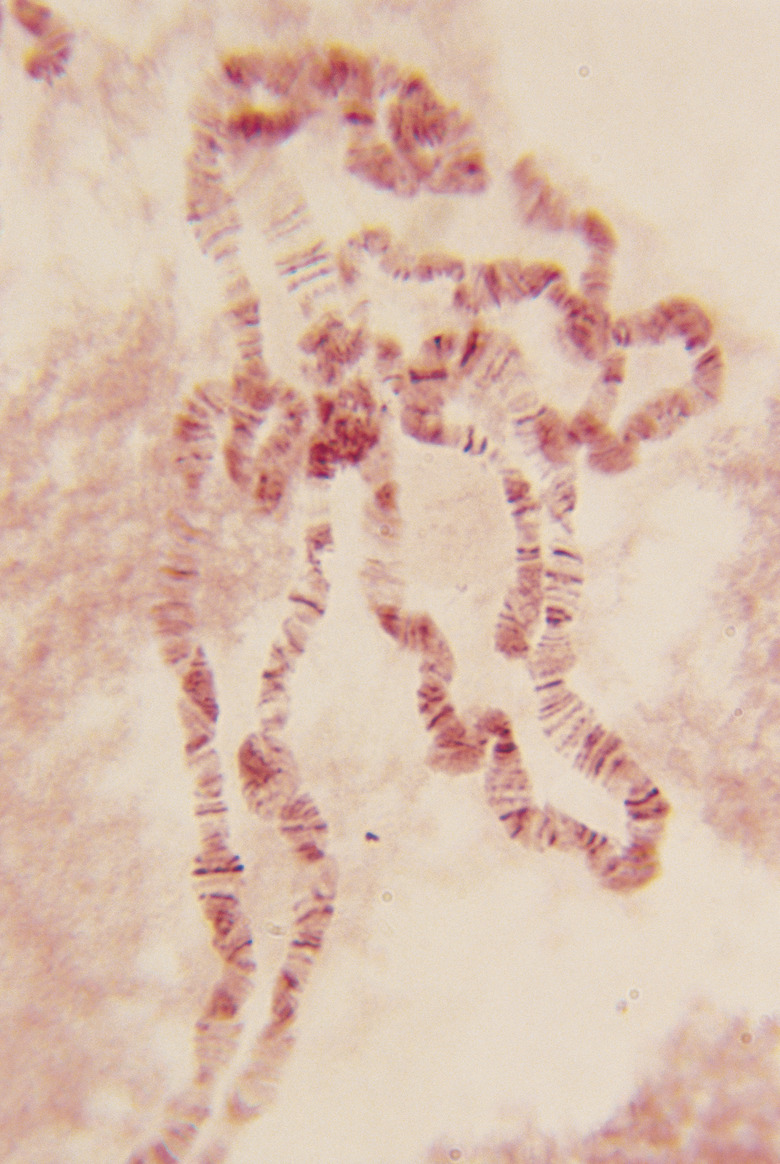What Are The Four Roles That DNA Must Play In Cells?
Since James Watson and Francis Crick revealed the structure of DNA, it has been accepted as the molecule of heredity. Before their discovery, the scientific community retained some skepticism that DNA was up to the job, because the role of DNA is fourfold and it seemed too simple a molecule to perform those four necessary functions: replication, encoding, cell management and the ability to mutate.
The unique structure of DNA allows it to fulfill all these functions.
The Building Blocks of DNA
The Building Blocks of DNA
DNA is short for deoxyribonucleic acid. It is made up of four nitrogenous bases, abbreviated A, C, G and T. Those bases form two strands and bind together in a double helix formation.
A always binds with T in one strand, and C always binds with G in the other, which is called the complementary base pairing rule.
Replication
Replication
One purpose of DNA is to replicate. This means that a strand of DNA makes a copy of itself. It happens during cellular division, and it is how DNA passes on inherited traits to the next set of cells.
During DNA replication, the double helix unwinds itself to form two single strands. When the two strands of DNA are separated and a new strand is built successfully, it will use the pattern of the existing strand to construct an exact copy.
Sometimes, for a variety of reasons, replication does not produce an exact copy. This is referred to as a DNA mutation. Mutations are critical to evolution, as they allows organisms to develop adaptations that can help them survive in changing environments.
However, DNA mutations in humans can also lead to parents unknowingly passing down certain genetic conditions to their children, including cystic fibrosis, Tay-Sachs disease and sickle cell anemia.
Encoding
Encoding
Encoding is another function of DNA. The work of each cell is done by proteins, so one of the roles of DNA is to build the right proteins for every cell. DNA fills this role by containing three-base sections — called codons — that direct the formation of proteins.
In a long stretch of DNA, each codon contains the information that directs the assembly of one amino acid onto a protein. Different codons correspond to the assembly of another amino acid onto a protein, so a whole section of DNA with a given sequence of bases will build a specific protein.
Cellular Management
Cellular Management
In multicellular organisms, a single fertilized cell, a zygote, divides and duplicates many times to make an entire living being. Each cell has exactly the same genetic material, but different cells develop in different fashions.
That is, in a process called cell differentiation some cells build the right proteins to become liver cells, and others become skin cells, others stomach cells. In addition, cells must change the way they operate as conditions change. Your stomach cells, for instance, have to produce more digestive hormones and enzymes when food is present.
DNA does this through signals that turn on and off the production of proteins involved in digestion. The same kind of thing happens as cells differentiate: signals trigger the right levels of protein production to form the appropriate cell.
The Ability to Mutate
The Ability to Mutate
Evolution is the change in characteristics as generations of an organism are produced. Evolution happens on small scales within an organism — such as changes in skin or hair color in humans — and also on large scales — such as the creation of the vast range of life on Earth from an early single-celled organism.
That can only happen if the genetic molecule can change, can mutate. As DNA replicates to make egg and sperm cells, changes can creep in on several levels.
One way is through single-point changes that add, subtract or change an existing sequence. Other changes happen when DNA molecules cross each other, switching the arrangement of genes on each of the two crossed strands of DNA.
Cite This Article
MLA
Gaughan, Richard. "What Are The Four Roles That DNA Must Play In Cells?" sciencing.com, https://www.sciencing.com/four-roles-dna-must-play-cells-13806/. 25 March 2019.
APA
Gaughan, Richard. (2019, March 25). What Are The Four Roles That DNA Must Play In Cells?. sciencing.com. Retrieved from https://www.sciencing.com/four-roles-dna-must-play-cells-13806/
Chicago
Gaughan, Richard. What Are The Four Roles That DNA Must Play In Cells? last modified March 24, 2022. https://www.sciencing.com/four-roles-dna-must-play-cells-13806/
